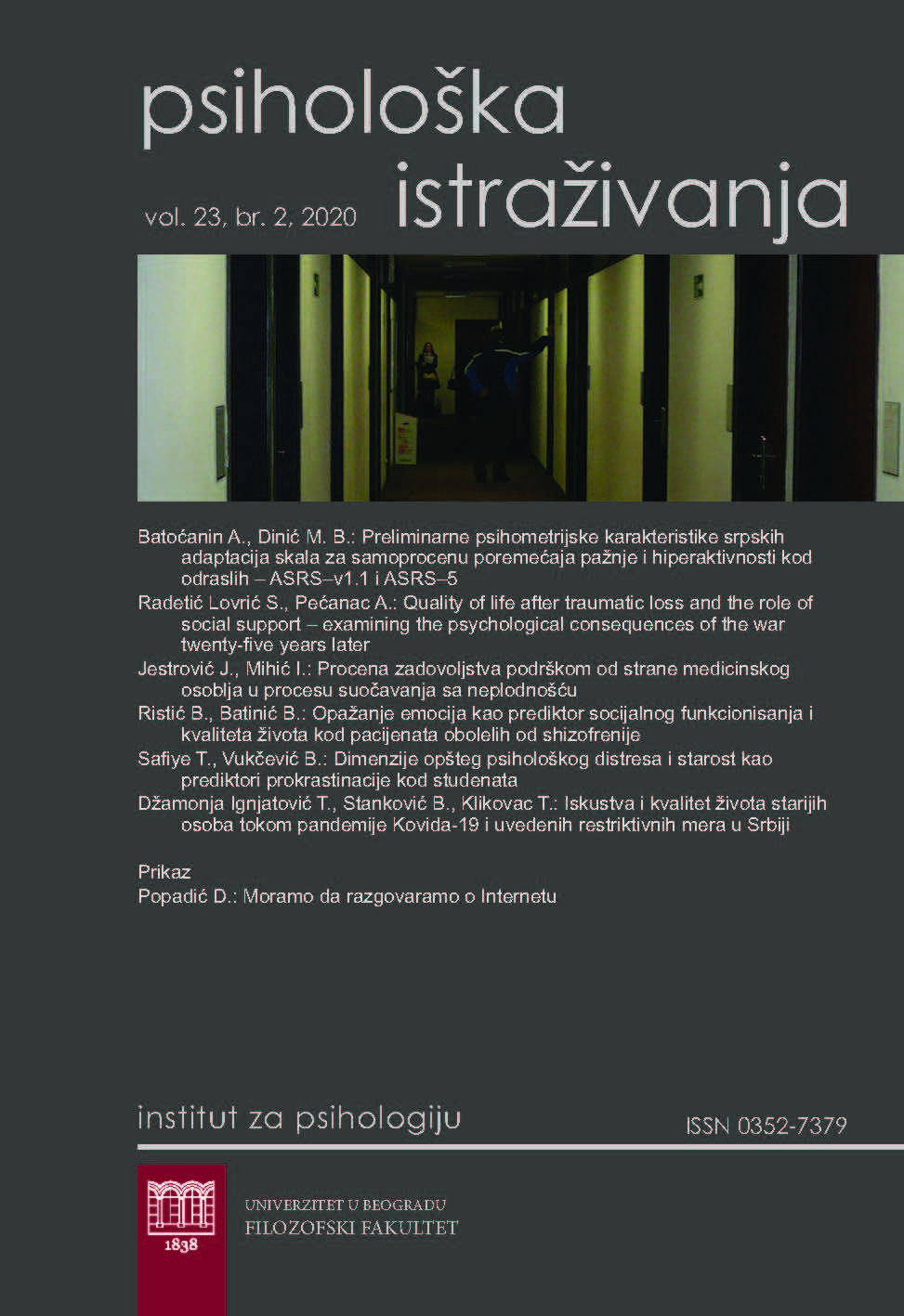Satisfaction with medical staff support in the process of dealing with infertility
Abstract
Regardless of the trend of using pacient-centred approach in (in)fertility clinics, which, in addition to medical support, includes the comprehensiveness of care provided by staff and psychological support, there is no research on satisfaction with medical staff care in Serbia yet. Accordingly, the main aim of this study is to examine the metric characteristics of the first quantitative instrument for measuring satisfaction with this type of support in Serbia – Medical Support Assessment Questionnaire, as well as examine the level of this satisfaction among women in our country. A total of 87 women, currently facing the problem of infertility, participated in the study. The reliability of the Questionnaire is high and expressed through the Kronbach's alpha coefficient is .96, while the one-factor solution is obtained using the Principal Components Method. The best rated aspect of medical staff support are technical skills and competencies for treatment implementation, while the worst rated included emotional support by medical staff and patient education about emotional effects of treatment. Furthermore, the results indicate that there is no statistically significant difference in these estimates depending on the length of infertility or age of participants. The findings show that medical staff is still focus on medical aspects of treatment and effectiveness instead of focusing on a holistic, patient-centered approach and open space for work on integrating a holistic approach into fertility clinics in Serbia. In addition, the results highlight the importance of having an effective and reliable instrument for measuring satisfaction with medical support for monitoring and improving the ART clinics service.
Authors retain the copyright of the published papers and grant to the publisher the nonexclusive right to publish the article, to be cited as its original publisher in case of re-use, and to distribute it in all forms and media. The published articles will be distributed under the Creative Commons Attribution ShareAlike 4.0 International license (CC BY-SA). It is allowed to copy and redistribute the material in any medium or format, and remix, transform and build upon it for any purpose, even commercially, as long as appropriate credit is given to the original
author(s), a link to the license is provided, it is indicated if changes were made and the new work is distributed under the same license as the original. Authors are permitted to deposit the author’s publisher’s version (PDF) of their work in an institutional repository, subject-based repository, author’s personal website (including social networking sites, such as ResearchGate, Academia.edu, etc.), and/or departmental website at any time after publication, with an acknowledgment of its initial publication in this journal.

